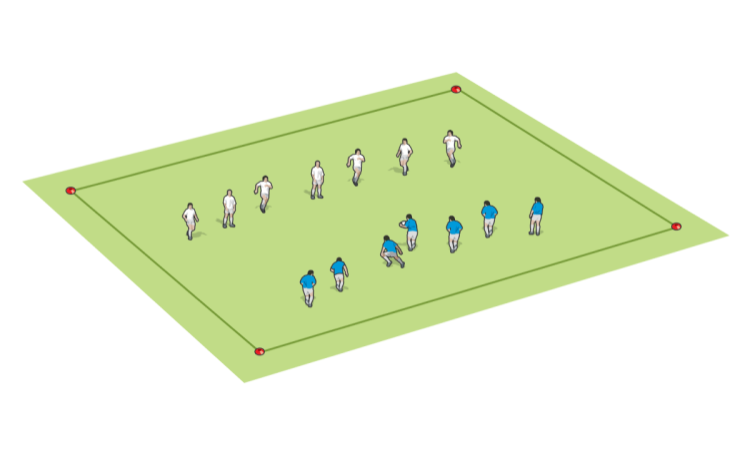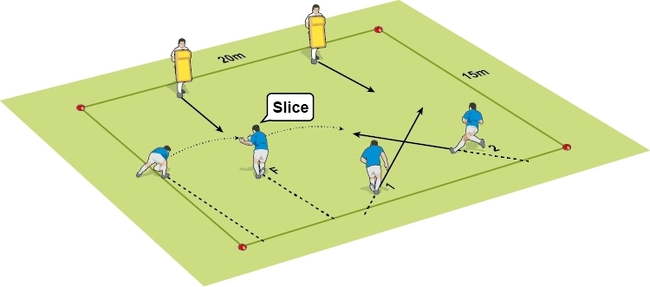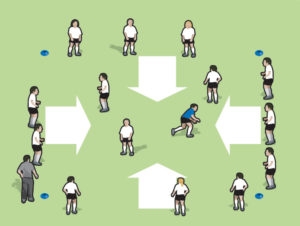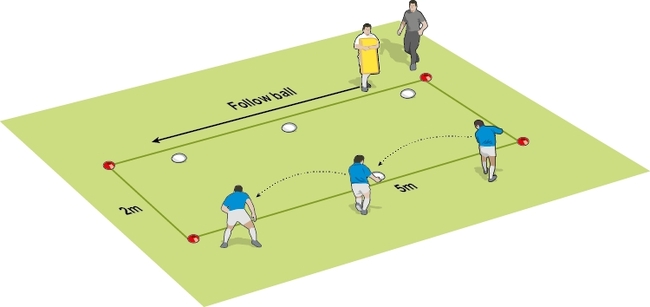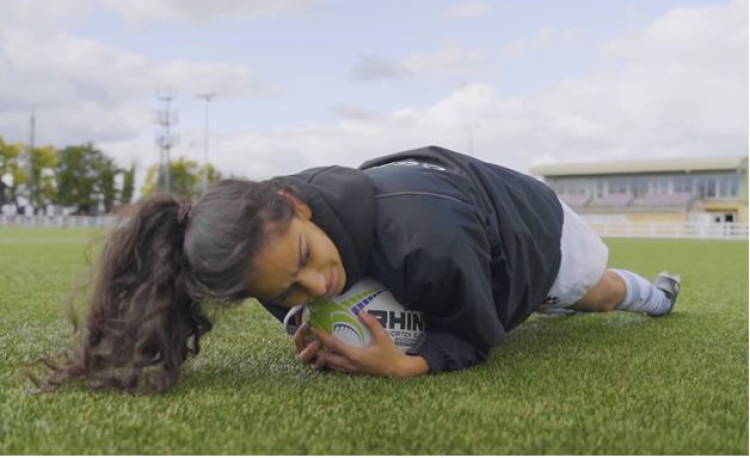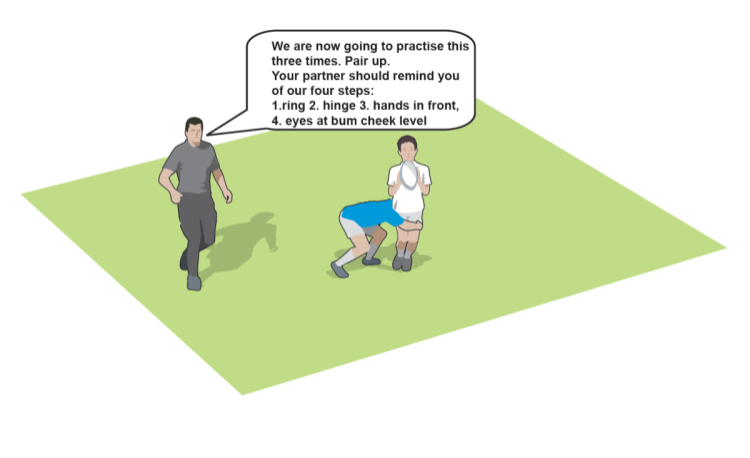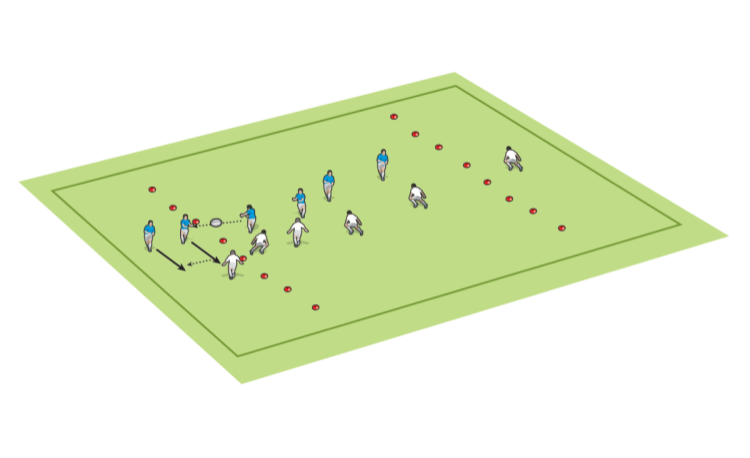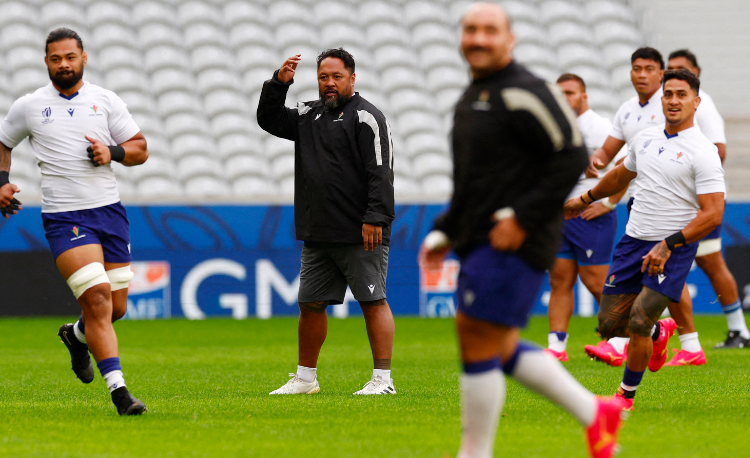Great player transition questions for Ready 4 Rugby
Small-Sided Gamesby Phil Llewellyn
Use these questions to support planning and reflection in your players as they are playing Ready 4 Rugby matches/training.
Below each question, I add some of the possible answers and follow up questions. Of course, the players may come up with even better thoughts.
THE QUESTIONS
- How does transition give us an opportunity to create pressure and score or win the ball back?
- What are the key elements of transition which would allow us to achieve this successfully?
- What are our goals whilst transitioning from attack to defence or from defence to attack?
How does transition give us an opportunity to create pressure and score or win the ball back?
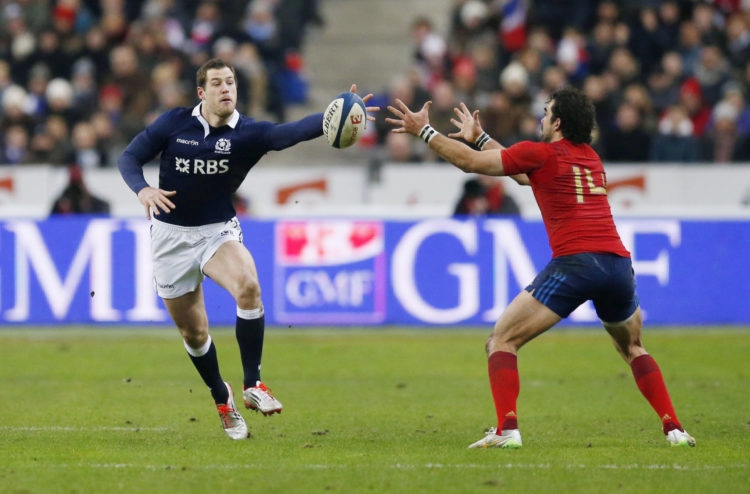
Transition is changing from defence to attack or vice versa.
It is arguably the most chaotic part of the game so being the team who can organise the fastest and recognise the best available space means we have a higher likelihood of scoring or creating opportunities to score at the very least.
Players on the opposition team may
- not be organised,
- not know what their role is,
- may be in a space they are not comfortable defending,
- or may not have support.
Defensive transition (moving from attack to defence)
There are also a number of opportunities to exploit.
- The attack will likely not have been expecting the ball so are not set up as they would be traditionally with depth and numerous options. This may make pressurising the threats easier are there are less to have to deal with.
- In the same fashion, the team now in defence are likely to be in movement as they were set to attack (had depth) and have now had to rush up to try and create a flat defensive line. This momentum is potentially something the attack do not have and so may mean we as the defensive team can utilise this to win the race to be organised first.
- Being organised may mean enough pressure is applied that the attack loses the ball or it may mean the attack has limited options available so end up taking a touch and slowing the game down to help themselves reorganise. I would always consider this a win for the defence and celebrate it with the players.
What are the key elements of transition which would allow us to achieve this successfully?
One philosophy for attacking transition (moving from defence to attack) which has made its way into rugby from basketball is to try and move the ball continuously until the person receiving it has no defender in front of them. This is a challenge but also a potentially great way to think about how best to exploit the chaos of transition.

I believe transition is a race on either side of the ball and whoever wins that race will have the best outcome. The outcomes, in this case, could be scoring or creating a break in attack or stealing the ball back or getting the attack to slow their own ball down in defence.
What are our goals whilst transitioning from attack to defence or from defence to attack?
Scanning, connecting and communicating would be the three most important actions for players to undertake quickly and efficiently if they are to transition well.
Attack goals
Goals for the attacking team could be, create Go Forward. This could be a line break through the middle, moving the ball to the outside space and breaking there or even a kick to space.
One element which often gets overlooked is the risk/reward scale and where players and coaches may sit on that scale. Having an agreed philosophy around how high risk the team want to be is useful to avoid frustrating situations where some players want to play quickly, take risks and go for the big rewards and others are comfortable with now having the ball and want to use more time to set up.
Neither is the wrong option and you will never get everyone on exactly the same page but to avoid frustration and conflict it is a useful discussion to have in some form.
Defence goals
The same applies to the defence. There is a higher level of risk to going for interceptions or man-and-ball touches but the reward is also far higher.
Discussing and strategising how you can make best use of this is important. The last thing you would want is one player going for the intercept, no one knowing they were going for it and the attack exploiting the opportunity it creates if they don't intercept the ball.
Noticing what the other team's risk/reward philosophy or strategy is could be hugely beneficial to your team, how you play the game and how you exploit their predictability.
Some defensive goals you may want to try could be measuring:
- How quickly you can get the ball back after a turnover.
- How many times can you score directly without any touches following a turnover.
- How quickly you can score if you don't score from first phase.
- How many times the attack have to use all of their four touches following a turnover. The more often they do this the better your defence is becoming at stopping them score with fewer phases.

All these places focus on creating pressure, winning the ball and then what you do with the ball. Developing players thinking to understand defence is a fundamental part of attack could be hugely beneficial for their development.
Newsletter Sign Up
Coaches Testimonials

Gerald Kearney, Downtown Las Vegas Soccer Club

Paul Butler, Florida, USA

Rick Shields, Springboro, USA

Tony Green, Pierrefonds Titans, Quebec, Canada
Subscribe Today
Be a more effective, more successful rugby coach
In a recent survey 89% of subscribers said Rugby Coach Weekly makes them more confident, 91% said Rugby Coach Weekly makes them a more effective coach and 93% said Rugby Coach Weekly makes them more inspired.
Get Weekly Inspiration
All the latest techniques and approaches
Rugby Coach Weekly offers proven and easy to use rugby drills, coaching sessions, practice plans, small-sided games, warm-ups, training tips and advice.
We've been at the cutting edge of rugby coaching since we launched in 2005, creating resources for the grassroots youth coach, following best practice from around the world and insights from the professional game.



